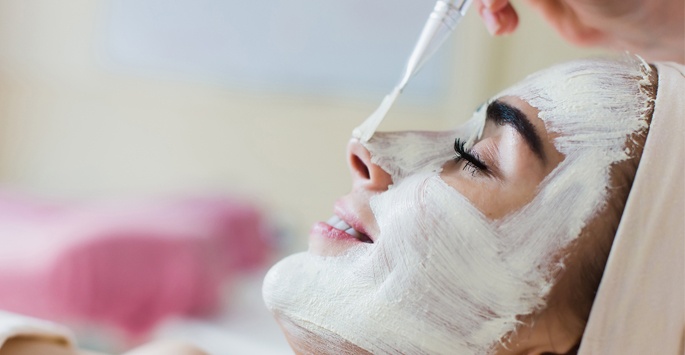
Chemical peels are a quick and easy way to exfoliate your skin and remove minor imperfections, and with several options tailored to a multitude of skin conditions, there is a peel that can work for any skin type. If you have ever wondered what it is like to get a chemical peel, we give you all the facts about what to expect.
Superficial peels are typically a relaxing treatment, with patients experiencing mild, if any, discomfort. Medium and deep peels can be accompanied by some discomfort due to the fact that they penetrate further and remove more skin, and numbing solutions can be provided. Chemical peels are one type of treatment that can correct a variety of cosmetic issues. These treatments take very little time to perform, and results are noticed very quickly, making them an ideal choice for those who have an important event coming up.
What are chemical peels?
Chemical peels are basically a chemical solution that is applied to the skin and then allowed to absorb. After this takes place, the skin will begin to flake and peel. This normally takes a couple of days to two weeks in most cases. The three basic types of chemical peels are as follows:
- Superficial peels: the mildest type that takes off only a very little skin. The primary ingredient used in these peels is glycolic acid.
- Medium peels: penetrate deeper than superficial peels and, therefore, remove more skin. The main ingredient in these peels is trichloroacetic acid (TCA). Something like the Jessner Peel would be considered a medium depth peel
- Deep peels: designed to penetrate several layers of skin and may be used only on facial areas. These peels primarily contain stronger doses of active ingredients that can noticeably lighten skin.
Typically, minimal preparation is needed for the skin and if you do need to use any special cleansers, moisturizers, or bleaching agents to prepare your skin you'll be prepared when you book your peel. Those who suffer from acne may need to use a prescription-strength medicine beforehand as well. The day of the procedure, the skin will be cleansed and then the solution will be brushed onto the skin and left on for a few minutes. Pain relievers may be given to patients who are undergoing a medium or deep peel, as these may cause some discomfort.
Are there any risks?
Yes, medium and deep chemical peels should only be used under the guidance of a licensed practitioner. Some people may experience an infection after having a chemical peel, which normally requires antibiotics to clear up. People may also be more sensitive to sunlight and burn more easily shortly after having a chemical peel. If you are pregnant, nursing, or recovering from a recent surgery, it may be best to skip the peel. You should also communicate issues such as a compromised immune system involving HIV/AIDS and herpes with your doctor before ever undergoing a chemical peel.
How long can the results be expected to last?
Superficial peels provide benefits for one to two months, while medium peels improve the appearance for three to six months. Deep peels may provide much longer-lasting results; however, they cannot be repeated once the effects have worn off.
How often can I get them?
That depends on the type of treatment. Superficial peels can be performed monthly in most cases, but medium peels should be performed only once or twice each year.
Are DIY-at-home peels a good idea?
No, the chemicals in one of these peels can be harmful if not used properly. Patients may also have a tendency to perform them more often than what’s recommended, which is why they should be performed only under the supervision of a board-certified dermatologist.
How much will a chemical peel cost?
Superficial peels are less expensive than medium or deep peels because anesthesia is not needed. The cost of each treatment can be discussed during an initial consultation. Many patients ask if insurance covers the cost, which it typically does not since this is considered an elective cosmetic procedure, however, financing options are available to patients who qualify.
Having a younger appearance can be easily obtained with the use of chemical peels and can fit nicely into busy schedules for individuals who do not have a great deal of downtime to recover from invasive procedures. Contact our office today if you are interested in scheduling a chemical peel today and see if it is the right solution for you.
Contact Us
Try a chemical peel today in our West Palm Beach or Jupiter office.

